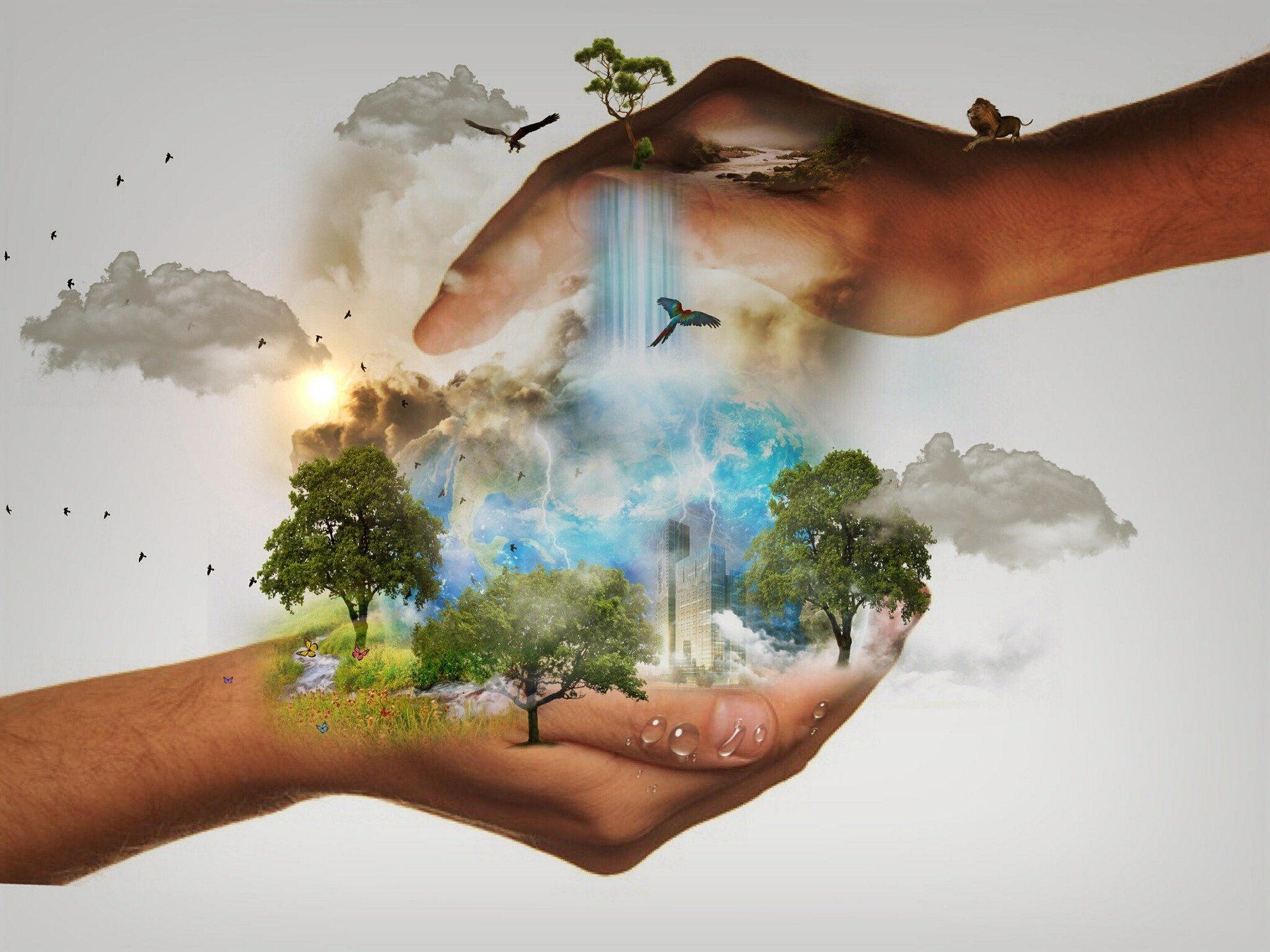
Imagine you are trying to decide what to plant in a new garden, and you choose all sorts of plants and shrubs which you like. You can't just go on buying individual plants without, sooner or later, coming to some view of the whole of the garden, otherwise you will have too many things for one part of the garden and not enough for another, or you may chose plants unsuited to the conditions, or that shade out each other. Holistic thinking enables you to deal with the garden as a whole and not just as a sum of its single parts.

At work Niels is asked to prepare a presentation on the topic of "sustainable consumption". He already knows about the climate impact of plastic packaging and waste separation.
To fill his knowledge gap he researches more information on "Animals and Consumption", where he learns to include further ethical aspects (animal husbandry), political (farmers' interests) and economic (meat prices) in his own position.